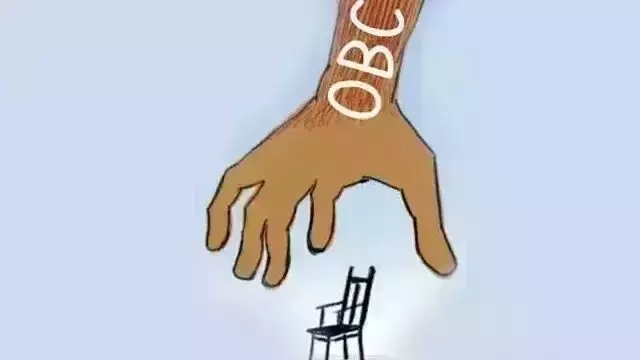
The key is to keep talking about quotas
text_fieldsWith the Kerala state government's decision to implement upper class reservation, in the euphemistic name of reservation for Economically Weaker Sections (EWS), across the entire government sector sparking considerable controversy, and with the backward community organisations coming out in stiff opposition, the government has been in an effort to muffle them with some patchwork acts. From the very outset, the government and its leading party, the CPM adopted an adamant position against any rethinking in the matter of forward class reservation. Even if the concept of forward class reservation is accepted in principle, it has been proven with support of solid statistics that its implementation in Kerala has been totally without any scientific survey. The most glaring of this was the way it was applied in admissions to MBBS and postgraduate medical courses: record of last year's medical admissions gave a picture of the upper castes, who formed a mere 20 percent of the state's population being elevated to the highest reservation-eligible category of Kerala. The government extended a reservation quota of 12.35 per cent to the upper castes, exceeding the ten percent ceiling set by the constitutional amendment. As a result, when Ezhava and Muslim communities secured 10 and 9 seats respectively in medical PG courses, the upper castes secured 30 seats. As for MBBS, Ezhava and Muslim categories secured 94 and 84 seats respectively, the upper castes bagged 130 seats. This was repeated during this academic year in the Plus-One, LLB and engineering admissions. Through such jugglery, even forward caste candidates who were ranked behind SC/ST reservation list were able to secure seats. Thus what came to be established is that the forward communities were more backward than scheduled caste/tribe sections.
Despite facts and figures emerging plain and simple, neither the CPM nor the government was prepared to revisit the decision. There were also attempts by the CPM to communalise the issue. For the ruling party was seen trying to explore creating a brand of communalism by portraying an issue that affects the backward communities forming 80 percent of the population, as a case of Muslim extremism. That however did not catch on as expected. Now in the matter of MBBS admission procedures, the government is trying to befuddle the people by making some tweaking in the percentage of quota. As said above, when forward reservation was implemented last year, the number of seats the forward communities secured in medical admissions was in excess of the stipulated 10 per cent. To avoid its repetition, the Principal Secretary of Health ministry issued a circular speciying the number of seats, as opposed to percentages, under reservation quota. Even then, the section that stands out as the biggest beneficiary of reservation is that of 'poor upper class'. They are entitled to the same 10 percent as the scheduled caste and scheduled tribe. It will not take deep research to determine the relative achievement levels of scheduled castes and forward communities in employment, education and representation in government machinery. But the LDF government's approach is one of equating the two. And it is when the two largest communities of the state - Ezhavas and Muslims – get only 8 and 9 percent respectively in medical admissions, that so liberal a concession is made for the forward communities.
What the government has done now is to merely make a slight change to correct the existing provision of 12.35 per cent quota of forward communities, which exceeds the constitutionally set ceiling. There is a deliberate attempt to drill home an impression that all issues related to forward class reservation have been resolved. Still the ten per cent reservation for forward castes stays. The crucial question is on the basis of what scientific statistics/study it was decided that the EWS group of forward castes are eligible for ten percent reservation. Let alone for the time being the theoretical aspects of how this damages the concepts of EWS reservation and representation in employment and government, the critical question is, even when advocating economic reservation in principle, on what basis is the percentage of ten decided. For a robust answer to this, there should be a comprehensive survey about the representation of different social sections in power structures, bureaucracy and education. Is the government prepared to conduct such a study? As of now, it is not prepared for that because post such a survey, the case of advocates of economic reservation will be exposed as lacking in any rationale. The government's attempt instead is is to cool down the protests against EWS reservation through a bureaucratic sleight of hand. The reservation communities should be seized of the fact that the history of reservation is also a history of toppling of reservation. The government is racking its brains on how to scuttle the protests against economic reservation. Therefore, the need of the hour is to keep talking about reservation and maintain the focus.






